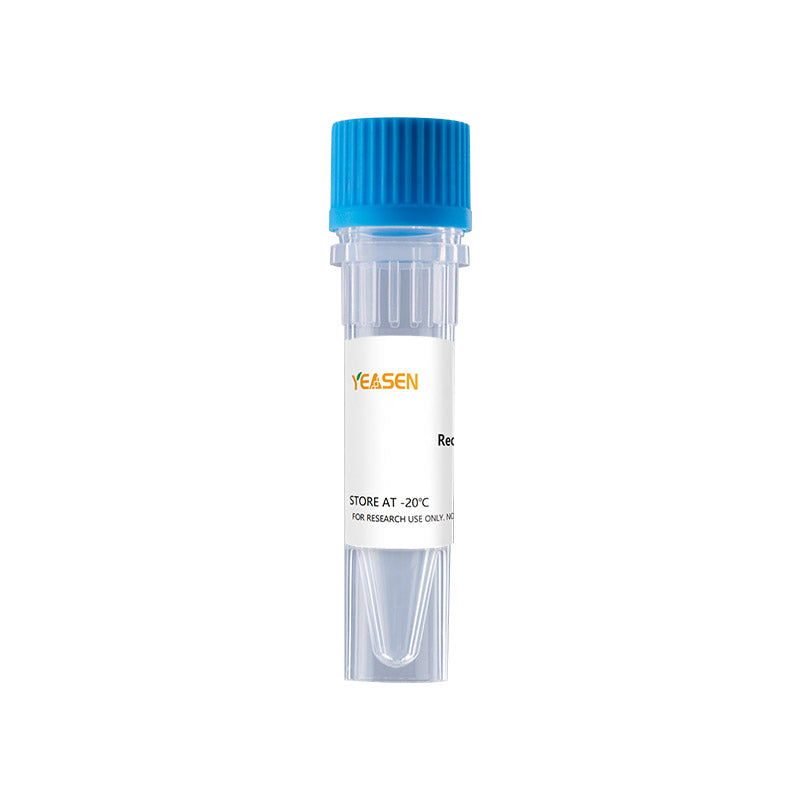Description
Rat CXCL2, also named CINC-3, is belonging to the CXC chemokine family. The protein sequence of mouse CXCL2 shows approximately 63% identity to that of mouse KC, another mouse alpha chemokine whose expression is induced by PDGF. The amino acid sequence of mouse CXCL2 is 60 % identical to human CXCL2. This chemokine is secreted from a mouse macrophage cell line. The functional receptor for CXCL2 has been identified as CXCR2. CXCL2 is a part of chemokine superfamily, which encodes secretory proteins involved in immune regulation and inflammation. CXCL2, a critical chemokine for neutrophils, has been shown to be produced in the rat intestine in response to platelet-activating factor (PAF) and to mediate intestinal inflammation and injury.
Product Properties
|
Synonyms |
chemokine (C-X-C motif) ligand 2, CINC-2a, CINC3, C-X-C Motif Chemokine 2, CXCL2, GRO beta, GRO2, GROB, Growth-regulated protein beta, Macrophage inflammatory protein 2-alpha, MGSA beta, MGSA-beta, MIP2, SCYB2 |
|
Accession |
|
|
GeneID |
|
|
Source |
E.coli-derived rat CINC-3/CXCL2 protein, Val28-Asn100. |
|
Molecular Weight |
Approximately 7.9 kDa. |
|
AA Sequence |
VVVASELRCQ CLTTLPRVDF KNIQSLTVTP PGPHCAQTEV IATLKDGHEV CLNPEAPLVQ RIVQKILNKG KAN |
|
Tag |
None |
|
Physical Appearance |
Sterile Filtered White lyophilized (freeze-dried) powder. |
|
Purity |
>98% by SDS-PAGE and HPLC analyses. |
|
Biological Activity |
The biological activity determined by a chemotaxis bioassay using rat neutrophils is in a concentration range of 10-100 ng/ml. Fully biologically active when compared to standard. |
|
Endotoxin |
< 1.0 EU per 1μg of the protein by the LAL method. |
|
Formulation |
Lyophilized from a 0.2 μm filtered concentrated solution in PBS, pH 7.4. |
|
Reconstitution |
We recommend that this vial be briefly centrifuged prior to opening to bring the contents to the bottom. Reconstitute in sterile distilled water or aqueous buffer containing 0.1% BSA to a concentration of 0.1-1.0 mg/mL. Stock solutions should be apportioned into working aliquots and stored at ≤ -20℃. Further dilutions should be made in appropriate buffered solutions. |
Shipping and Storage
The products are shipped with ice pack and can be stored at -20℃ to -80℃ for 1 year.
Recommend to aliquot the protein into smaller quantities when first used and avoid repeated freeze-thaw cycles.
Cautions
1. Avoid repeated freeze-thaw cycles.
2. For your safety and health, please wear lab coats and disposable gloves for operation.
3. For research use only!
Payment & Security
Your payment information is processed securely. We do not store credit card details nor have access to your credit card information.
Inquiry
You may also like
FAQ
The product is for research purposes only and is not intended for therapeutic or diagnostic use in humans or animals. Products and content are protected by patents, trademarks, and copyrights owned by Yeasen Biotechnology. Trademark symbols indicate the country of origin, not necessarily registration in all regions.
Certain applications may require additional third-party intellectual property rights.
Yeasen is dedicated to ethical science, believing our research should address critical questions while ensuring safety and ethical standards.

